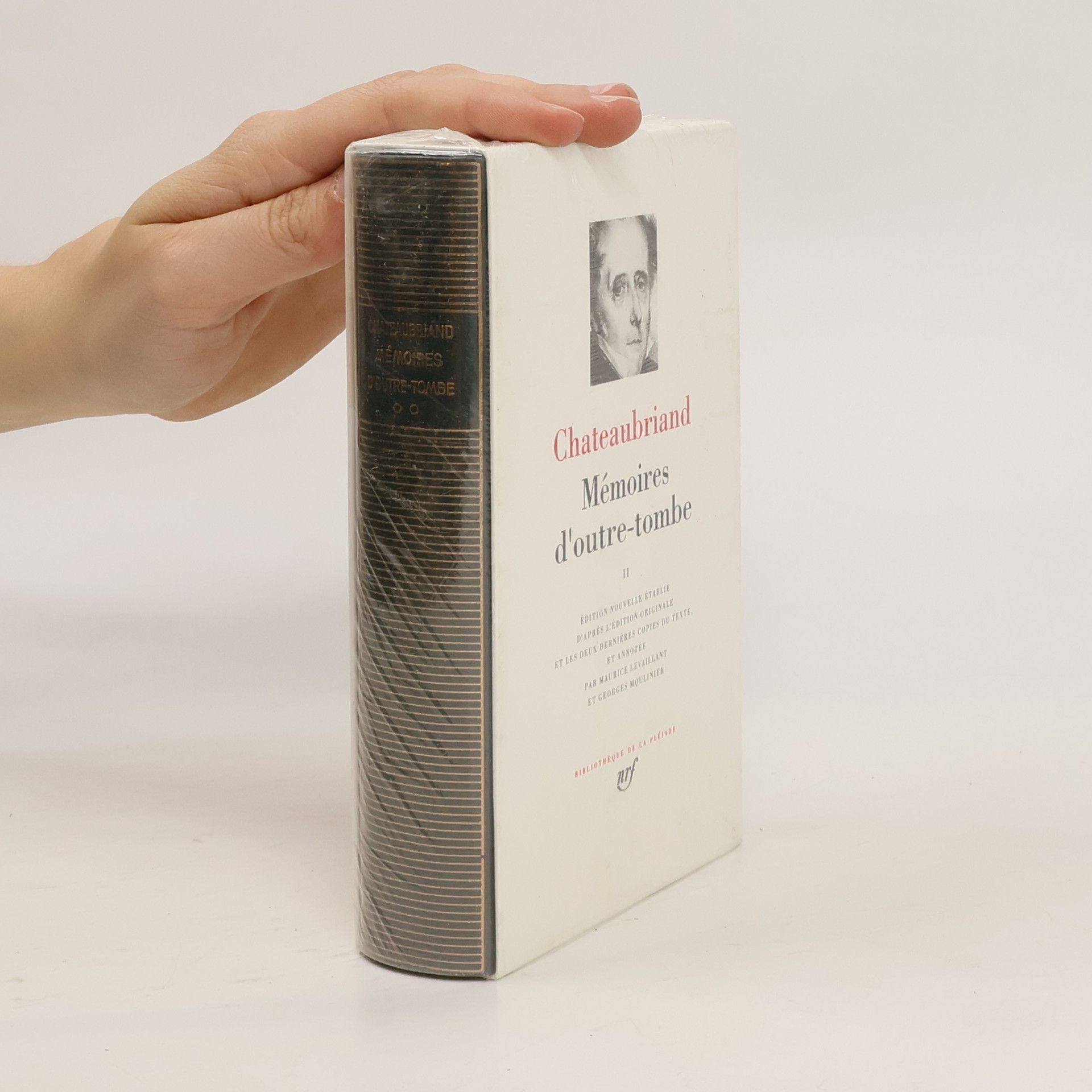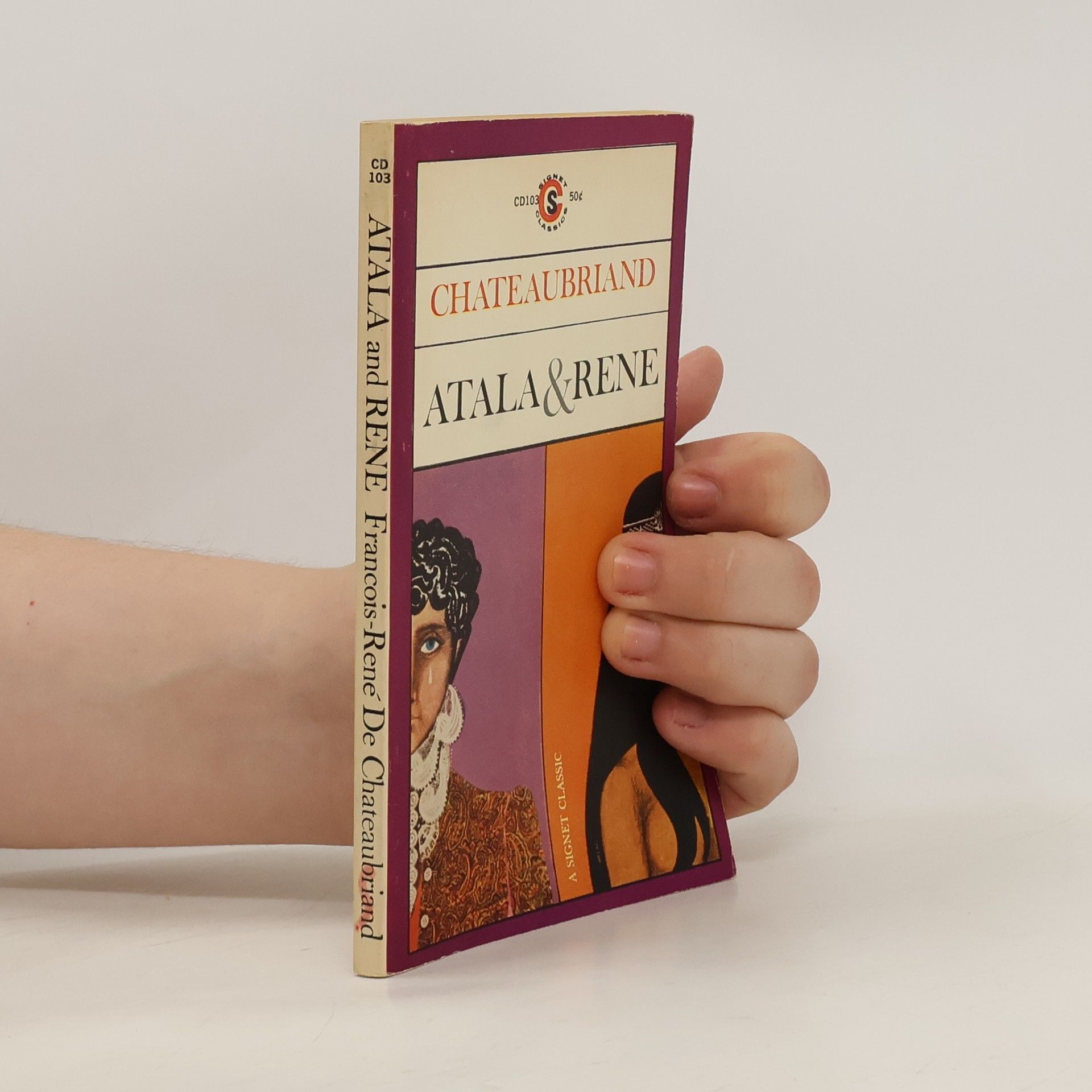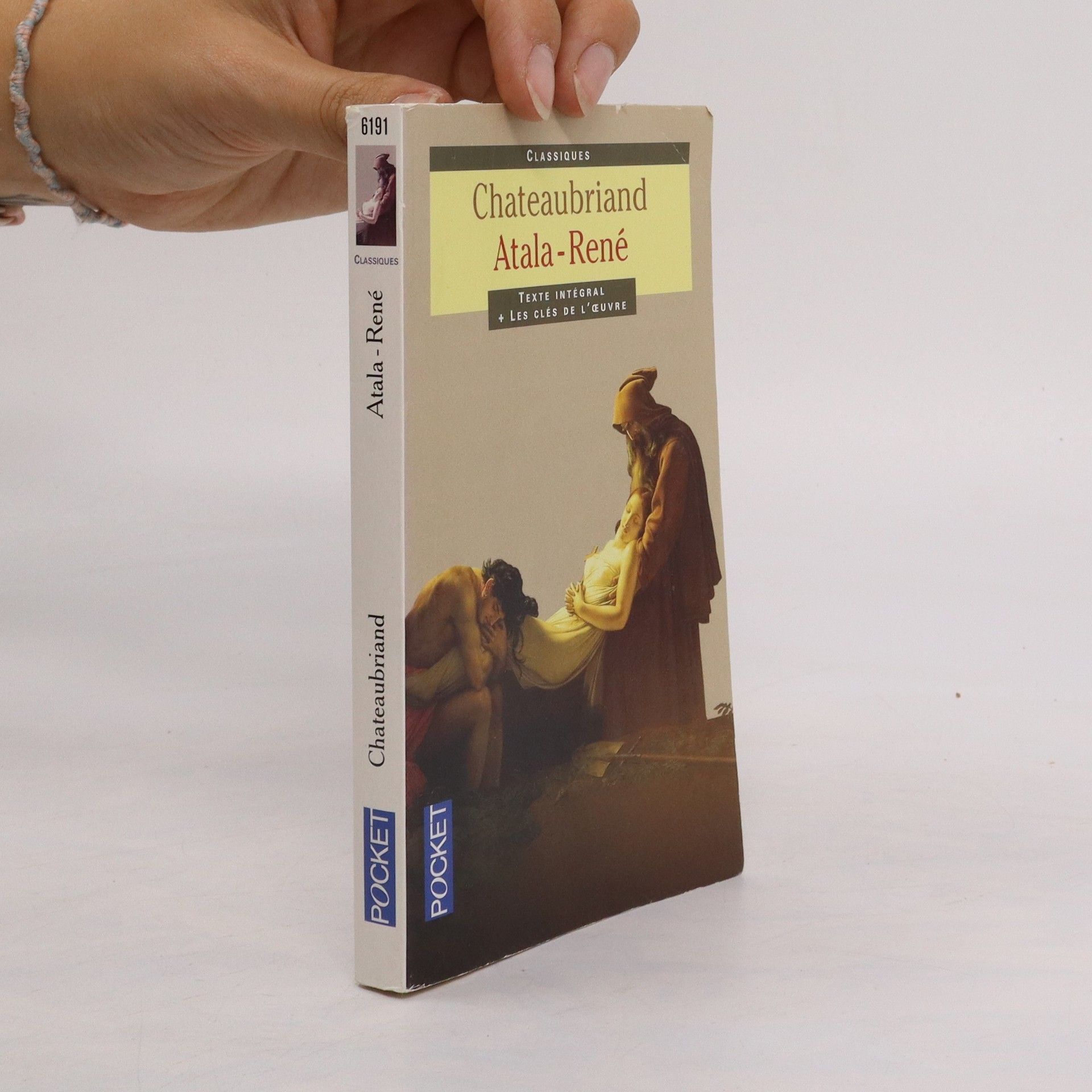Dans 'Atala - René - Les Natchez', Chateaubriand aborde la nature, la passion amoureuse et la spiritualité à travers trois récits interconnectés. Son style romantique et lyrique invite à une réflexion sur la condition humaine, les conflits entre civilisation et nature, foi et passion. Une lecture captivante et philosophique.
François-René de Chateaubriand Book order (chronological)
François-René de Chateaubriand is hailed as the founder of French Romanticism. His writings are characterized by a profound sensibility and a melancholic outlook on the world. Through his prose, he explored the complexities of human emotion and humanity's relationship with nature. His distinctive literary style, rich in imagery and poetic turns of phrase, laid the groundwork for future generations of French authors.






L'œuvre poétique complète de Chateaubriand est une immersion dans son âme romantique, avec des poèmes lyriques explorant la nature, l'amour et la nostalgie. Son style épique et musical, ancré dans le romantisme français du XIXe siècle, offre une expérience riche en émotions. Une lecture captivante pour les amateurs de poésie.
François-René de Chateaubriand: Erzählungen. Atala / René / Der Letzte der AbenceragenLesefreundlicher Großdruck in 16-pt-SchriftMit seinen beiden frühen Erzählungen Atala und René ist Chateaubriand Hauptvertreter - wenn nicht Begründer - der literarischen Romantik in Frankreich. Das Bild von Rousseaus edlem Wilden spiegelt sich in dem greisen Indianerhäuptling Chactas, der von seiner Liebe zu Atala erzählt, die als Tochter einer Idianerin und eines Weißen gemeinsam mit ihm in die Savanne flieht, bevor sie sich der Entscheidung zwischen Natürlichkeit und Frömmigkeit durch den Tod entzieht.Großformat, 210 x 297 mmBerliner Ausgabe, 2023Durchgesehener Neusatz mit einer Biografie des Autors bearbeitet und eingerichtet von Theodor BorkenAtala: Erstdruck: Paris 1801.René: Erstdruck: In: Génie du christianisme, Paris 1802.Der Letzte der Abenceragen: Erstdruck: In: Oeuvres complètes, Bd. 14, Paris 1826.Textgrundlage ist die Ausgabe:[Chateaubriand, François René, Vicomte de]: Chateaubriands Erzählungen. Übers. v. Maria von Andechs (Baronin von Leinburg, Leipzig und Wien: Bibliographisches Institut, [1855].Dieses Buch folgt in Rechtschreibung und Zeichensetzung obiger Textgrundlage.Umschlagabbildung: Anne-Louis Girodet-Trioson, Das Begräbnis der Atala, 1808Gesetzt aus der Minion Pro, 16 pt.Henricus - Edition Deutsche Klassik GmbH
Geniusz chrześcijaństwa (1802) Chateaubrianda to chyba najsławniejsze dzieło autora wydanych już po polsku Pamiętników zza grobu. Jego wpływ na współczesnych był bardzo duży: w chaosie poglądów po rewolucji ukazywało ono religię jako drogę do spełnienia wszelkich tęsknot i dążeń ludzkich. W dziedzinie literatury wpływ jego był nie mniejszy: odrzucenie mitologii pogańskiej i podkreślenie roli chrześcijaństwa jako źródła inspiracji artystycznej przygotowały drogę romantyzmowi. Chateaubriand napisał tę książką, aby obronić chrześcijaństwo przed zarzutami i uprzedzeniami XVIII wieku. Aby przywrócić chrześcijaństwu należne miejsce w świadomości współczesnych Chateaubriand uzasadnia jego wyższość w stosunku do innych religii i mitologii oraz ukazuje, że religia ta odpowiada ludzkiej naturze i prowadząc do szczęścia pozaziemskiego, daje szczęście już tu na ziemi.
ŻYWOT RANCÉGO to nieznane w Polsce arcydzieło wielkiego francuskiego pisarza. Na jego premierę czekaliśmy niemal dwieście lat. Opowiada o życiowej i duchowej podróży Armanda Jeana de Rancégo. Dziecięcy geniusz, chrześniak kardynała Richelieugo i ulubieniec XVII-wiecznych dworów na końcu swej drogi zostanie opatem trapistów – cysterskiego zakonu o najsurowszej w Kościele Katolickim regule. François-René de Chateaubriand napisał to dzieło na polecenie swojego duchowego przewodnika. Praca nad książką była dla autora moralną, metafizyczną podróżą, w którą dzięki wspaniałemu tłumaczowi możemy dziś wyruszyć także i my. Z FRANCUSKIEGO ORYGINAŁU PO RAZ PIERWSZY NA JĘZYK POLSKI PRZEŁOŻYŁ WIKTOR DŁUSKI
The second part of an infamous memoir about life in the time of Napoleon by a rebellious literary celebrity. In 1800, Fran�ois-Ren� de Chateaubriand sailed from the cliffs of Dover to the headlands of Calais. He was thirty-one, and had been living as a political refugee in England for most of a decade, at times in such extreme poverty he subsisted on nothing but hot water and two-penny rolls.Over the next fifteen years, his life changed utterly. He published Atala, Ren�, and The Genius of Christianity to acclaim and epoch-making scandal. He strolled the streets of Jerusalem and mapped the ruins of Carthage. He served Napoleon in Rome, then resigned in protest after the Duc d'Enghien's execution, putting his own life at tremendous risk. For these were also the years of Bonaparte's secret police, censorship, and warmongering--all of which Chateaubriand would come to oppose.Memoirs from Beyond the Grave, 1800-1815--the second volume in Alex Andriesse's new and complete translation of this epic French classic--is a chronicle of triumphs and sorrows, narrating not only the author's life during a tumultuous period in European history but the "parallel life" of Napoleon, from his birth on Corsica to his death on Saint Helena. In these pages, Chateaubriand continues to paint his distinctive self-portrait, in which the whole history of France swirls around the sitter like a mist of dreams.
La collection Connaître une oeuvre vous offre la possibilité de tout savoir des Mémoires d'outre-tombe de Chateaubriand grâce à une fiche de lecture aussi complète que détaillée. La rédaction, claire et accessible, a été confiée à un spécialiste universitaire. Cette fiche de lecture répond à une charte qualité mise en place par une équipe d'enseignants. Ce livre contient la biographie de Chateaubriand, la présentation de l'autobiographie, le résumé détaillé, les raisons du succès, les thèmes principaux et l'étude du mouvement littéraire de l'auteur.
Neuauflage des Klassikers zum 250. Geburtstag von Francois René de Chateaubriand am 04. September 2018, in bibliophiler Ausstattung, neu übersetzt und mit einem Nachwort von Karl-Heinz Ott. In überwältigenden Landschaftsschilderungen schildert François-René Chateaubriand (1768–1848) seine Kindheit in der Bretagne. Wir erleben das Meer, die Weite, die Heide wie mit eigenen Augen, als sei dort die Natur seit zweihundert Jahren die gleiche geblieben, während alles um sie herum sich radikal ändert. In Chateaubriands Leben spiegeln sich ganze Epochen. Die Neuübersetzung von Karl-Heinz Ott setzt mit Chateaubriands Geburt in Saint-Malo ein und reicht über den Sturm der Bastille, den er mit eigenen Augen erlebt hat, bis zu seinem Aufbruch nach Amerika. Chateaubriand gilt als der größte Stilist französischer Sprache. Wer ihn liest, vergisst nie wieder die Bilder, mit denen er vom Kleinsten bis ins Größte ganze Welten erstehen lässt. Allen voran aber sind sie eine Liebeserklärung an die Bretagne.
Der Letzte der Abenceragen
- 88 pages
- 4 hours of reading
Die Novelle "Der Letzte der Abenceragen" erzählt die tragische Geschichte eines Liebespaares im Granada des 16. Jahrhunderts, das sich aus Loyalität und Pflichtgefühl voneinander trennt. François-René Vicomte de Chateaubriand, ein bedeutender Vertreter der französischen Romantik, verbindet in diesem Werk emotionale Tiefe mit historischen Elementen und reflektiert die Themen Liebe und Opfer. Diese Novelle gehört zu seinen wenigen Prosatexten und zeigt seine Rolle als Wegbereiter der romantischen Literatur in Frankreich.
